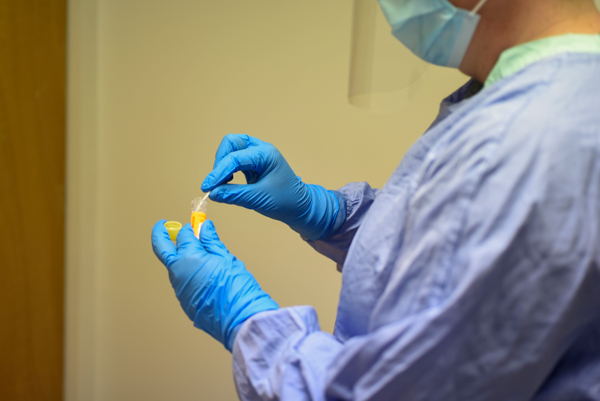Saskatchewan has three new cases of COVID-19.
On Friday, the province reported new cases in the Saskatoon area, the far north and in the south—this brings the provincial total since the beginning of the pandemic to 663.
Friday also saw one additional recovery, bringing that total to 627.
Twenty-three of the cases are considered active. Nine are in the far north, one is in the north, nine are in Saskatoon, two are in the Regina area and two are in the south.
One person with COVID-19 is in hospital. The province says the patient is in the intensive care unit in Saskatoon.
Of the 663 cases in the province:
- 146 cases are related to travel, 399 are community contacts (including mass gatherings), 79 have no known exposures and 39 are under investigation by local public health.
- 51 cases are health care workers; however, the source of the infections is not related to their work places in all instances.
- 263 of the cases are from the far north, 177 are from the Saskatoon area, 112 are from the north, 80 are from the Regina area, 19 are from the south and 12 are from the central region.
- 98 cases involve people 19 years of age and under, 236 cases are in the 20-39 age range, 200 are in the 40-59 age range, 111 are in the 60-79 age range and 18 are in the 80-plus range.
- 52 per cent of the cases are females and 48 per cent are males.
- 13 deaths related to COVID-19 have been reported to date.
So far, 54,508 COVID-19 tests have been performed in the province.
Precautionary health advisory issued for Clearwater River Dene Nation
The Northern Inter-Tribal Health Authority (NITHA) has sent out a precautionary health advisory for northern Saskatchewan’s Clearwater River Dene Nation.
Two people from the community have tested positive for COVID-19 after attending a wake and a funeral. The results have not been recorded by the Roy Romanow Provincial Laboratory and are not yet included in Saskatchewan’s COVID-19 numbers.
NITHA and the Saskatchewan Health Authority are advising anyone who attended the wake on June 10 or the funeral on June 11 to immediately self-isolate and monitor themselves for symptoms of the virus.
Province provides clarity on Thursday’s Re-Open Sask. Plan updates
In a news release on Friday, the provincial government clarified a few points after Thursday’s announcement on increasing the attendance cap on worship services and graduation ceremonies and guidelines for Phase 4.
The government is now allowing up to 150 people or one-third of seating capacity, whichever is less, at these gatherings.
The release said:
- Outdoor sports and activities, such as baseball and soccer, cannot begin training/practicing until the first part of Phase 4. The dates for that part of the phase will be announced early next week. The Outdoor Sports and Activities Guidelines were included in the updated plan to provide organizations with advance notice to support planning and preparations. The guidelines have been revised to clarify the timing.
- The revised Places of Worship Guidelines apply to all worship services, including celebrations of life, weddings and outdoor ceremonies. With respect to weddings, the expanded gatherings only apply to wedding ceremonies and not wedding receptions.
- No food is to be served in any of the above allowed gatherings.
Provincial state of emergency extended
Also on Friday, the Government of Saskatchewan extended the provincial state of emergency until June 24.
It’s reminding residents that they must follow public health measures at any gathering, including at worship and graduation ceremonies. All other gatherings are limited to 15 people indoors and 30 people outdoors.
The release said to do a risk assessment before attending gatherings. Consider whether you or someone close to you has a chronic health condition that may put them at a greater risk.
COVID-19 testing is currently available to anyone working outside of their homes or returning to work. Testing is also available to those being admitted to acute care for more than 24 hours, including expectant mothers, and immunocompromised individuals and their health care providers.
If you are experiencing symptoms of fever, cough, shortness of breath, headaches, aches and pains, sore throat, chills, runny nose or a loss of your sense of taste or smell, contact HealthLine 811 or your family physician.


